Michelle Fahy investigates the Australian Strategic Policy Institute’s development of deep connections to the world’s largest and most powerful military weapons manufacturers.
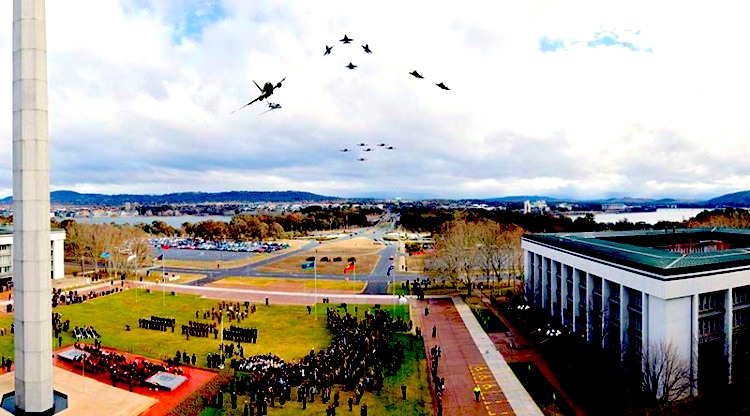
Four RAAF Boeing F/A-18 Hornets, each priced at $90-million, plus a swarm of other flying assets, conduct a low-level fly past during a parade at Defence Department offices at Russell Hill in Canberra. (Department of Defence)
By Michelle Fahy
Declassified Australia
 The Australian Strategic Policy Institute (ASPI) in Canberra is the government’s primary source of outside-government advice, research and analysis on military and strategic affairs. Since its establishment in mid-2001, it has veered away from its founding vision.
The Australian Strategic Policy Institute (ASPI) in Canberra is the government’s primary source of outside-government advice, research and analysis on military and strategic affairs. Since its establishment in mid-2001, it has veered away from its founding vision.
There is a jarring disconnect between the lofty goals of independence expressed in ASPI’s charter, and the infiltration of ASPI by tentacles of the military-industrial complex. This has been barely mentioned in Australia’s mainstream media.
A Declassified Australia investigation has uncovered a casebook example of ‘state-capture’, with the development of deep connections between ASPI, and the world’s largest and most powerful military weapons manufacturers.
Australia is a significant participant in the global arms trade at present. Its $270-billion decade-long spending spree upgrading weapons and war machines is large by international standards, and Australia is increasingly becoming an arms seller too. As Australia moves militarily ever closer to the U.S., even defense insiders say the defense industry is “awash with money.”
The wars in Iraq, Afghanistan, Syria and Yemen have made the world’s biggest weapons manufacturers richer, larger and more influential. At the lesser-known end of the spectrum, the Yemen war is notable for its extensive human rights abuses and war crimes: it has created the world’s largest humanitarian crisis. Despite pleas from the UN, the arms still flow and the war continues. The weaponry for this war has been supplied by the world’s top arms manufacturers, including Lockheed Martin, BAE Systems, Boeing and missile-maker Raytheon.
ASPI & the Weapons Lobby
The Australian subsidiaries of these and other global weapon-makers have been regular ASPI sponsors for years. Some of them have successfully used the back door to gain access to ASPI’s top table, its governing council. ASPI council members have included former senior military officers, defense ministers and federal MPs who are also on arms and cyber company boards. It has also included former and current arms industry executives. The challenge to ASPI’s independence is large and real.
ASPI’s founding charter, since it was established in 2001 by then Prime Minister John Howard with bipartisan support from Labor leader Kim Beazley, declares it must “operate independently of Government and of the Defence Organisation.”
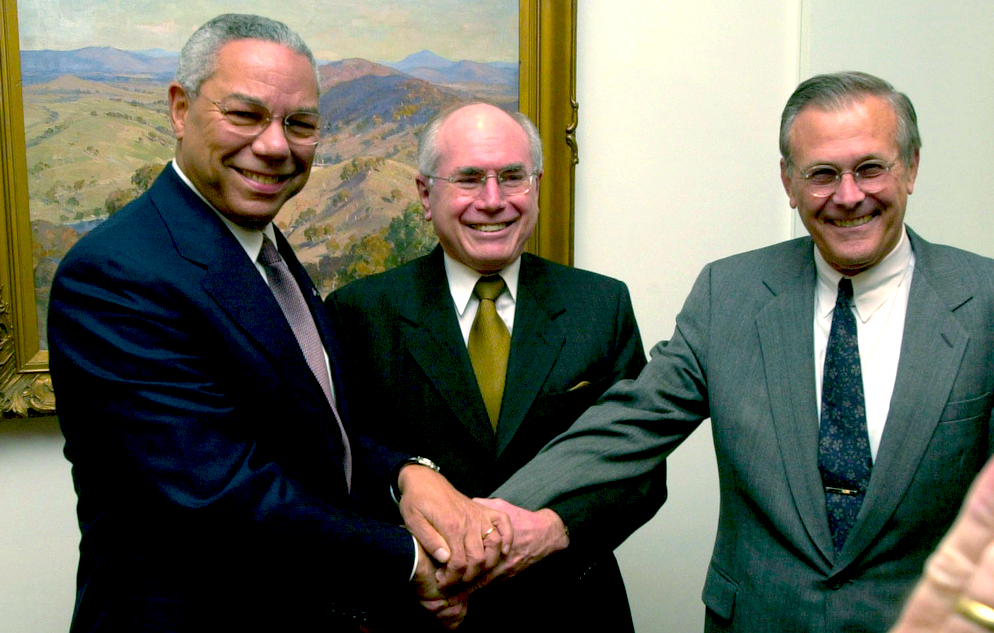
July 30, 2001: Australian Prime Minister John Howard (center) with U.S. Secretary of Defense Donald Rumsfeld (right) and U.S. Secretary of State Colin Powell, inside Parliament House in Canberra. (DoD, Paul Holcomb)
Further, it states that “the perception, as well as the reality, of that independence would need to be carefully maintained.” Thus, from the outset, the government was acknowledging how such an important think tank would be vulnerable to capture by vested interests, both ideological and commercial.
The prime purpose initially set down for ASPI was to introduce “contestability of advice” thereby ensuring the inclusion of alternate views in government decision-making. ASPI’s charter literally demands that:
“The Institute should take steps to avoid becoming identified with any narrowly-defined lines of thought on specific issues, and attention should be paid to publishing a range of views on contentious topics.”
Our investigation shows that the ASPI council has numerous members who represent or have close links to the military-industrial complex. Of the 11 non-executive directors on ASPI’s governing council, five sit on the boards or advisory boards of weapons or cybersecurity corporations, while numerous past council members have had similar connections.
The current council includes former Howard Defence Minister Robert Hill. He’s on the supervisory board of German weapon-maker Rheinmetall’s Australian subsidiary, which is supplying Defence’s $5 billion of Boxer combat reconnaissance vehicles, and will soon also produce and export ammunition for the U.S. Joint Strike Fighter program. Hill is also chair of Viva Energy Group, a major supplier of fuel to the Australian Defence Force (ADF).
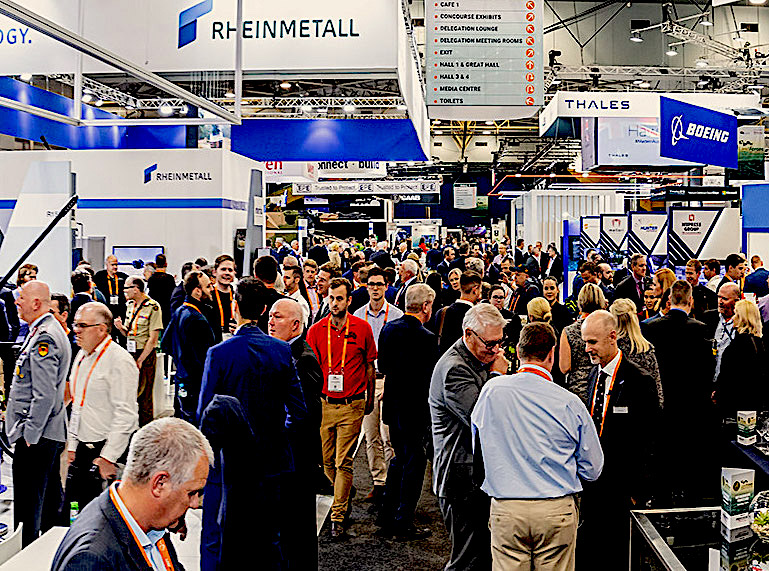
Rheinmetall, Thales and Boeing are among the world’s largest military weapons manufacturers that attend regular defense sales fairs in Australia, like this Landforces Exhibition, where their representatives present a deadly sales spiel. (AMDA Foundation)
As well, Hill serves as “chair of counsellors” at enigmatic lobbying firm Dragoman Global, where one of his colleagues is Nick Warner, former defence secretary, head of the Office of National Intelligence (ONI) and director general of the Australian Secret Intelligence Service (ASIS). Dragoman has a major client in Naval Group, the French naval shipbuilder that had won the $90 billion submarine project recently dumped by the Morrison government.
Hill’s presence on the ASPI council may surprise ASPI-watchers as his profile does not appear on the ASPI council webpage nor in its annual report. Declassified Australia asked ASPI why Hill was not listed, to which ASPI responded: “Council members have a choice about whether they supply profiles.”
Then there’s another former Liberal defence minister, Brendan Nelson, now the president of Boeing Australia, New Zealand and South Pacific. In addition to its commercial aviation business, Boeing is the world’s third-largest arms manufacturer. Boeing Defence Australia is one of Australia’s top handful of defense contractors, supplying planes and drones to the RAAF, attack helicopters and, potentially, if ASPI’s recommendation is followed, drone submarines, along with much else. The presence of Boeing’s most senior regional leader on the ASPI council is perhaps the biggest challenge for ASPI in guarding its required independence.
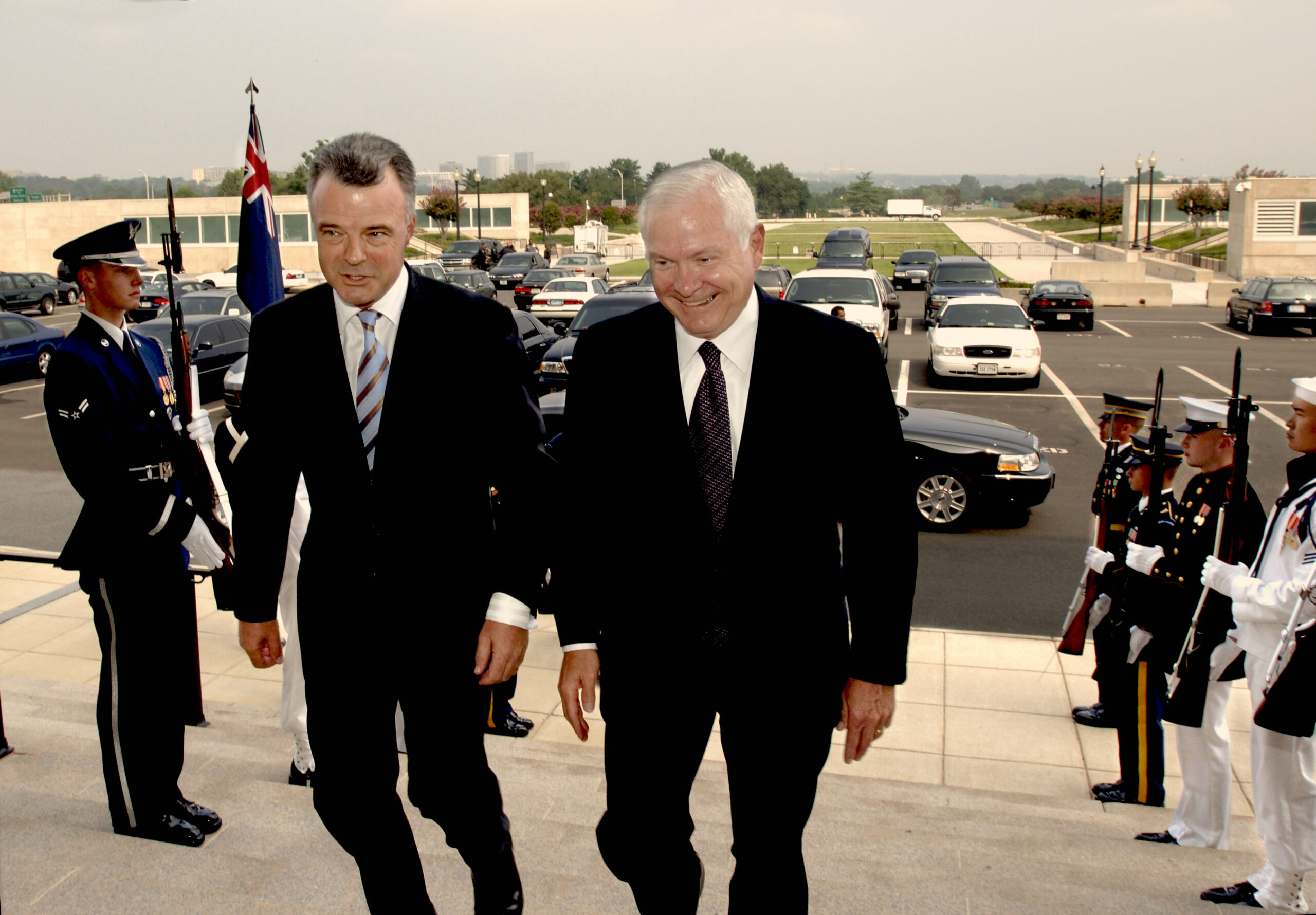
Aug. 31, 2007: Australian Defence Minister Brendan Nelson (left) at the Pentagon with U.S. Defense Secretary Robert Gates. (DoD, R. D. Ward)
Meanwhile, former chief of army, Lt Gen Ken Gillespie (ret’d), chairperson of ASPI’s council, is on the boards of Naval Group Australia and cybersecurity firm Senetas Corporation. He was previously on the board of Airbus Australia Pacific, a European conglomerate that mostly supplies and maintains the ADF’s helicopters. None of these interests is disclosed in Gillespie’s profile on ASPI’s website nor its annual report.
Another ASPI council member, Jane Halton, is also on the board of Naval Group Australia, although this is not mentioned on the ASPI website. Readers may recall her senior role in the Department of Prime Minister and Cabinet during John Howard’s 2001 “children overboard” scandal. She is chair of the board of Vault Cloud, along with co-director, former defence secretary and ASIO boss Dennis Richardson. Vault Cloud provides high-security cloud infrastructure for government and critical industries, now in rapidly increasing demand.
Council member Gai Brodtmann, a former Labor MP, is on the advisory board of cybersecurity company Sapien Cyber, a Perth-based company chaired by former defence minister Stephen Smith. America’s former top surveillance chief, James Clapper, is on Sapien’s governance board.
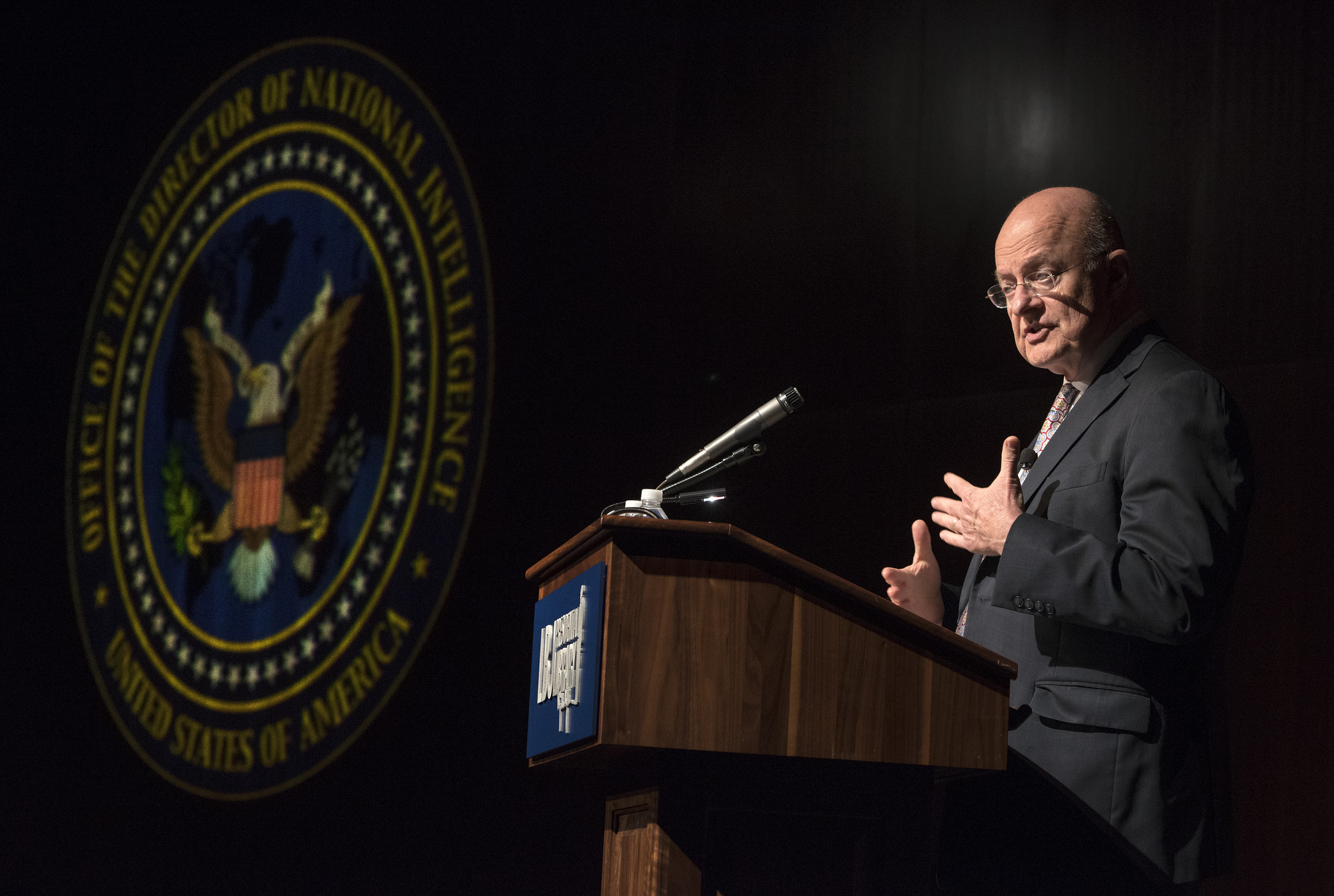
James Clapper, former U.S. director of national intelligence, in 2016. (LBJ Library, Jay Godwin)
The Lynx Infantry Fighting Vehicle (a panzer-style light tank) and the Boxer Combat Reconnaissance Vehicle (an armoured patrol vehicle) are expected to be constructed, under the Defence Department’s $5.2 billion LAND-400 Phase 2 program, at the new Australia-Pacific production facility of the German military weapons manufacturer Rheinmetall Defence Australia, located in Queensland. (Photo: Rheinmetall)
The other ASPI Council members — James Brown, Stephen Conroy, Stephen Brady, Lavina Lee, Denis Dragovic, and Jennifer Ma — have relevant experience but no publicly known positions with weapons or defence-related companies.
Support CN’s Winter Fund Drive!
On a recent ABC TV Q&A that focused on China, ASPI Council member Lavina Lee appeared along with Channel Nine reporter Chris Uhlman, and host, ABC reporter, Stan Grant. Despite the program’s focus on Australia’s strategic outlook with China, no mention was made that Lavina Lee is an ASPI council member, bar a comment from Stan Grant that she was “associated with” ASPI. Neither was it mentioned that the show’s host Stan Grant was a senior fellow of ASPI during 2020. Of lesser relevance but still of interest, panelist Chris Uhlman’s partner is Gai Brodtmann, another ASPI council member.
Declassified Australia put questions to ASPI and the current council members. Dr. Nelson declined to comment. No other council member responded by deadline. ASPI replied saying it manages conflict-of-interest matters in line with other Australian proprietary limited companies, and that “Council members will recuse themselves from discussions which may give rise to the perception of a conflict of interest matter.”
ASPI has a history of council members with interests in the defence industry. Jim McDowell was chief executive of BAE Systems in Australia for a decade, and then ran BAE in Saudi Arabia, where the Saudi military has since used BAE arms in the catastrophic war in Yemen. Returning to Australia, he was engaged by Liberal defence industry minister Christopher Pyne on numerous sensitive defense projects while also on ASPI’s Council. BAE Systems is in the running to provide Australia’s planned nuclear-powered submarines under the AUKUS pact.
Former Labor Senator Stephen Loosley’s council membership, including seven years as chair, coincided with board roles at French arms multinational Thales Australia, manufacturer of the Austeyr, the service rifle for all the Australian military, as well as armored vehicles, submarine sonars and munitions. The Thales group has been accused of selling weapons to the Indonesian military who are running a war in West Papua against the independence movement.
Former Labor Defence Minister Kim Beazley was an ASPI distinguished fellow for two years in 2016-2018. For the majority of that time he was on the board of Lockheed Martin Australia while writing regularly for ASPI, without ASPI disclosing his board position at Lockheed.
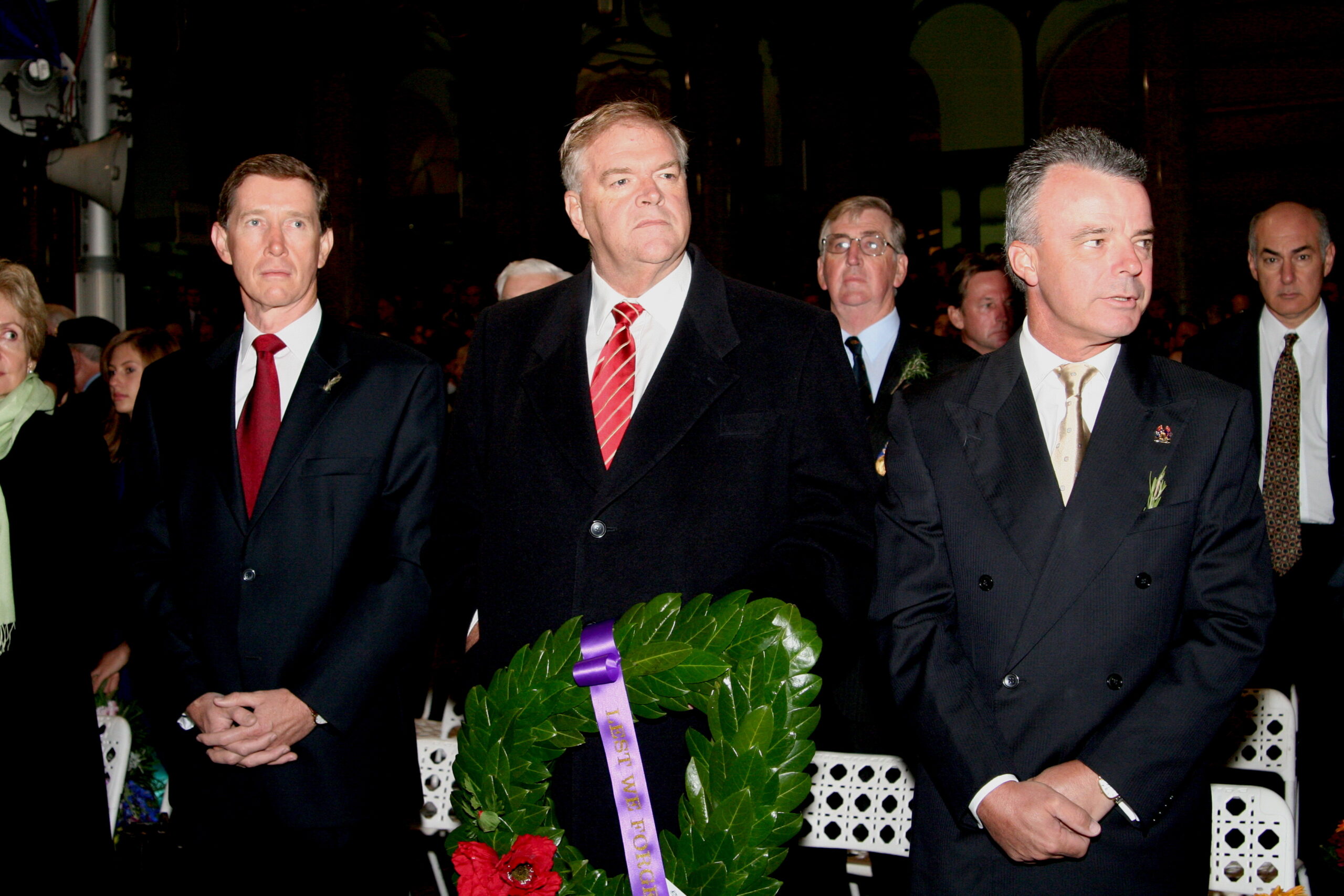
April 25, 2006: Kim Beazley, center. (Jasabella, CC BY-SA 2.5, Wikimedia Commons)
Another former Liberal defence minister, David Johnston, who famously didn’t trust the Australian Submarine Corporation to “build a canoe,” joined the ASPI council soon after his appointment to the board of Saab Technologies, the Swedish arms multinational that supplies integrated combat systems for Australia’s submarines and warships. Johnston was appointed the Australian government’s first Defence Export Advocate during his tenure on the council.
Retired Air Vice-Marshal Margaret Staib was on the board of QinetiQ, a British defense multinational that is deeply embedded with Defence’s weapons arm, Defence Science and Technology. Former Defence Secretary Allan Hawke was on the Lockheed Martin Australia board for the final six months of his time on the ASPI Council.
ASPI’s independence is drawn into question not just by its board appointees but also by some research fellows. One recent example is the former director of cyber, intelligence and security at BAE Systems Applied Intelligence, Rajiv Shah, who cowrote a report on collaboration within the intelligence community that was sponsored by BAE Systems. Shah is now an ASPI fellow and a consultant to government and industry. ASPI does not disclose either in the report nor in his website bio Shah’s previous employment with BAE Systems, one of the world’s top 10 arms companies. Dr. Shah did not respond to questions.
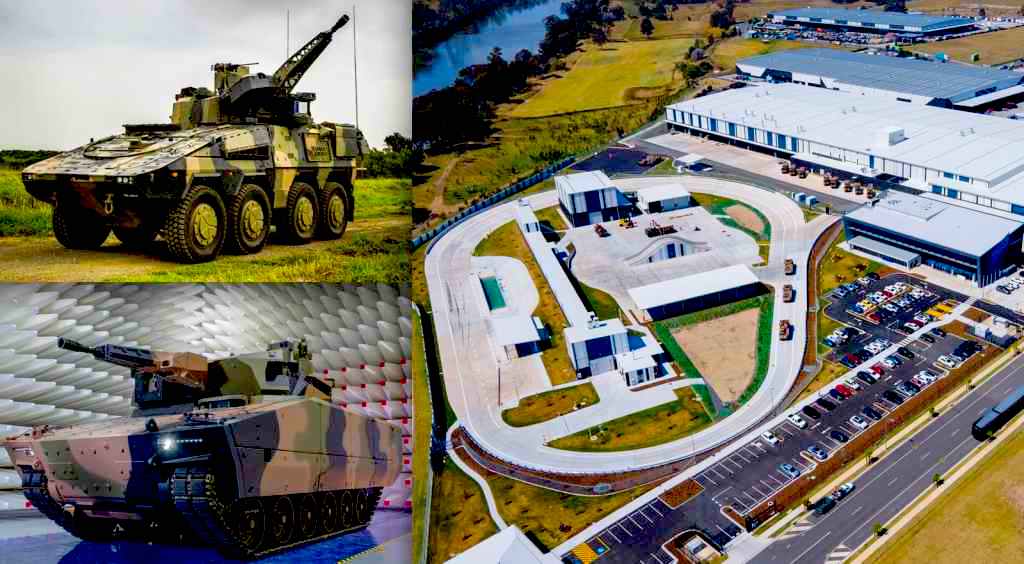
The Lynx Infantry Fighting Vehicle (a panzer-style light tank) and the Boxer Combat Reconnaissance Vehicle (an armored patrol vehicle) are expected to be constructed, under the Australian Defence Department’s $5.2 billion LAND-400 Phase 2 program, at the new Australia-Pacific production facility of the German military weapons manufacturer Rheinmetall Defence Australia, located in Queensland. (Rheinmetall)
Declassified Australia does not imply any illegality by any past or present ASPI Council members, fellows or staff. The issue is the deep involvement of people associated with global weapons manufacturers, and the potential for, and perception of, conflicts with ASPI’s charter of independence.
The Reshaping of ASPI
At its foundation, the ASPI Council was instructed by the government to ensure its independence. As set down by the defence minister, it is required not only to be “politically non-partisan” but also, most crucially, to “reflect the priority given to both the perception and substance of the Institute’s independence.”
The Howard government had envisaged that ASPI would do this by maintaining a “very small’ permanent staff while relying mostly on short-term contracts, secondments and similar arrangements for its research work. It would not publish views in its own name but would provide a forum for the views of a wide variety of outside experts.
Twenty years on, ASPI has morphed into a very different organization.
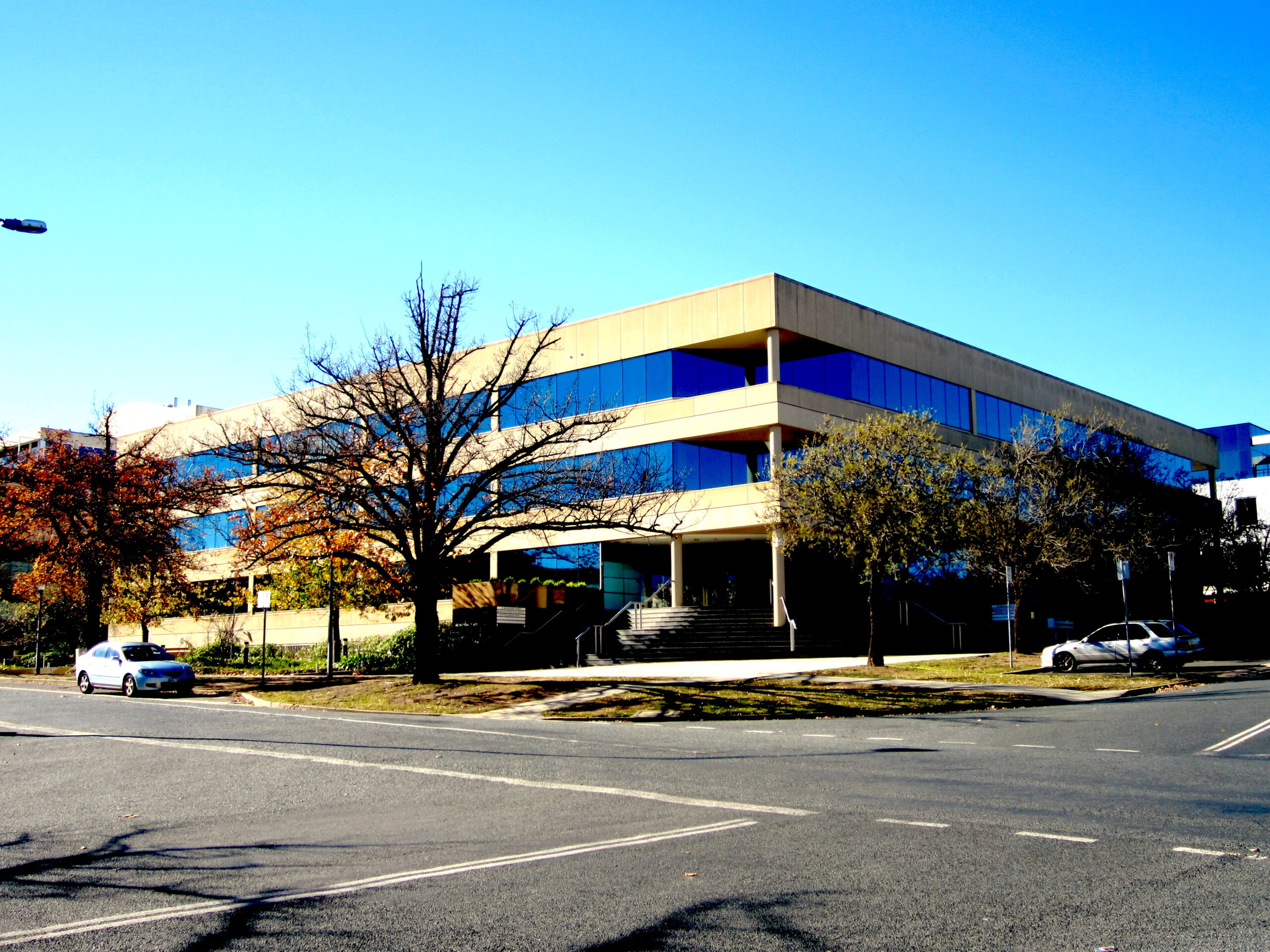
Australian Strategic Policy Institute building in Canberra. (Nick-D, CC BY-SA 3.0, Wikimedia Commons)
A decision by Labor Prime Minister Kevin Rudd to make Stephen Loosley the ASPI Council chair in 2009, while Loosley was on the Thales Australia board, tested perceptions of independence. Then, in 2012, the Gillard Labor government appointed the current executive director directly from the senior position of deputy secretary of atrategy in the Defence Department. In the late 90s, Peter Jennings had been chief of staff to Liberal Defence Minister Ian McLachlan when the Howard government first mooted the idea of creating ASPI.
Under this new leadership, ASPI set about expanding. Staff numbers have quadrupled in nine years from 14 to 60, plus there are now 29 research fellows and nine interns.
ASPI receives its core funding via a grant from the Defence Department. In 2018, the Morrison government approved a $20 million grant to cover five years’ of ASPI operations. In May 2021, this grant was increased by $5 million to cover two years of operations of a new Washington, D.C., office.
Since 2012, ASPI has vigorously pursued additional funding. Within two years, annual income from commissioned research jumped from $37,000 to $1.1 million, and sponsorships were up 235 percent to $746,000. ASPI’s own-sourced revenue has continued to grow dramatically. In 2011-12, ASPI received less than $500,000 above its base funding, by 2020-21 it had exploded to $6.7 million.
The single largest source of ASPI’s funding in 2020-21, beyond its core funding, was from the U.S. Government’s Departments of Defense and State ($1.58m), followed by additional funding from Defence ($1.44m) and other federal government agencies ($1.18m).
The NSW and Northern Territory governments provided $445,000. In the private sector, the largest source was social media, tech and cybersecurity companies ($737,362), with Facebook ($269,574), Amazon ($100,000) and Microsoft ($89,500) being the largest. From the arms industry, ASPI received $316,636, with more than two-thirds of that coming from two of Australia’s largest defense contractors, Thales ($130,000) and BAE Systems ($90,000).
In 2019-20, Twitter gave ASPI $147,319 for its cyber research. Significantly, Twitter last week announced a partnership with ASPI said to be dealing with misinformation from the Chinese communist party that was seeking to counter evidence of human rights abuses in Xinjiang. As a result of ASPI’s research, thousands of “state-linked accounts” were shut down by Twitter.
While the cash from the arms industry may not appear substantial, as we have seen, the arms industry wields its major influence via its representatives finding their way on to seats at the top table.
The substantial extra funding from the U.S. government, Defence and other Australian government departments, as well as corporate interests, provides a real challenge to ASPI’s responsibility to remain independent. It raises serious questions about undue influence, including foreign influence, at ASPI.
ASPI responded to our questions about protecting the perception of its independence by saying it retains “complete editorial independence on the material we choose to research.” It said it would not accept funding from parties attempting to constrain its editorial independence.
But just what does the U.S. government get in return for its $1.57 million funding of ASPI, beyond its research projects on human rights violations, disinformation and cybersecurity in China?
And what might BAE Systems get for its $90,000 grant to ASPI, other than a new report on the need for a “collaborative and agile” intelligence community?
And what about Thales Australia, in return for its $130,000 grant to ASPI, beyond just being lead sponsor of the 2020 ASPI Conference?
The answer for them all, is “influence.”
ASPI’s role in advising the Australian government on defense strategy and procurements and cybersecurity would better serve the Australian people if it was to return to its original charter of researching and publishing a diversity of views from a position of uncompromised independence.
Michelle Fahy is an independent writer and researcher, specialising in the examination of connections between the weapons industry and government, and has written in various independent publications. She is on twitter @FahyMichelle, and on Substack at undueinfluence.substack.com
This article is from Declassified Australia.
The views expressed are solely those of the author and may or may not reflect those of Consortium News.
Support CN’s
Winter Fund Drive!
Donate securely with PayPal
Or securely by credit card or check by clicking the red button:


Show Comments